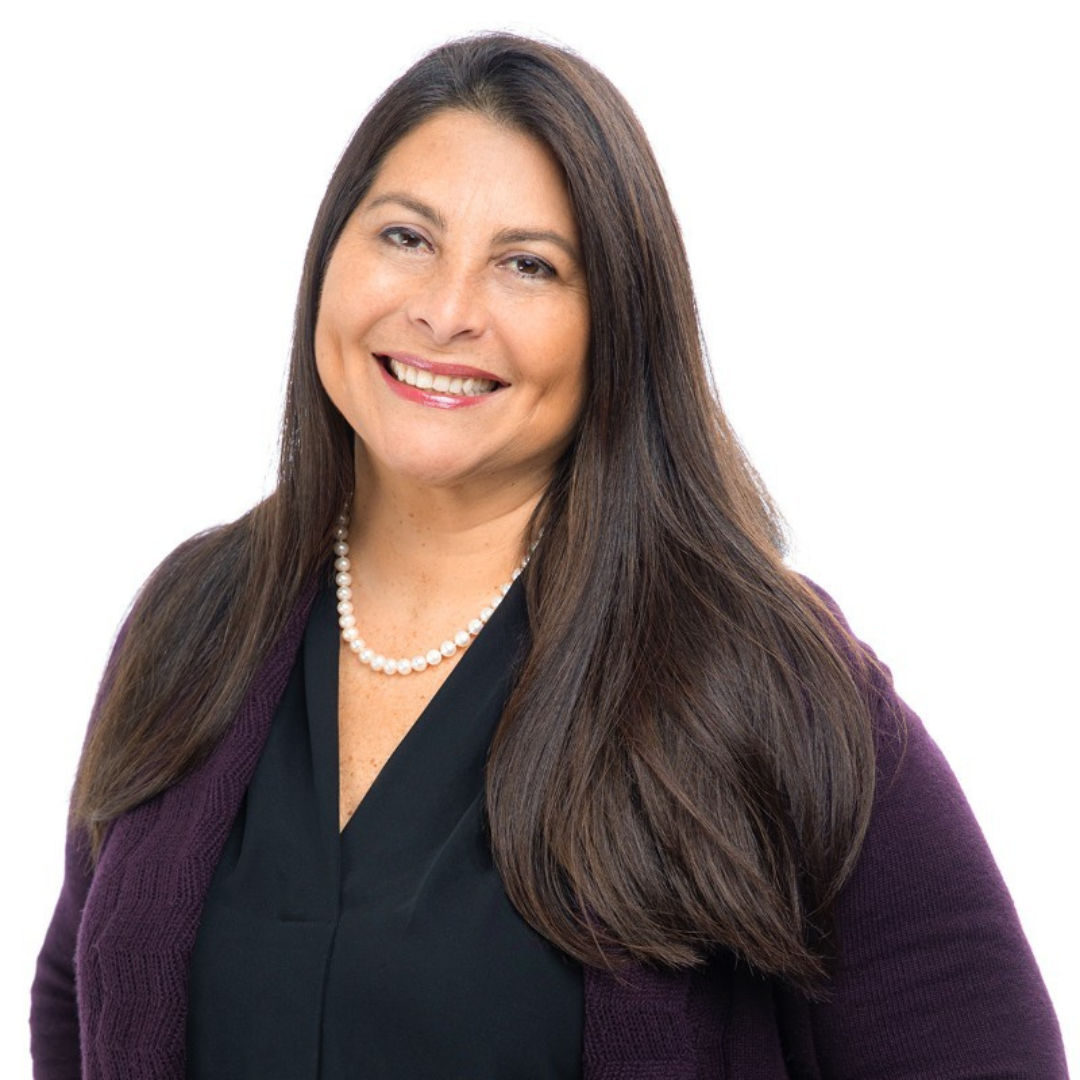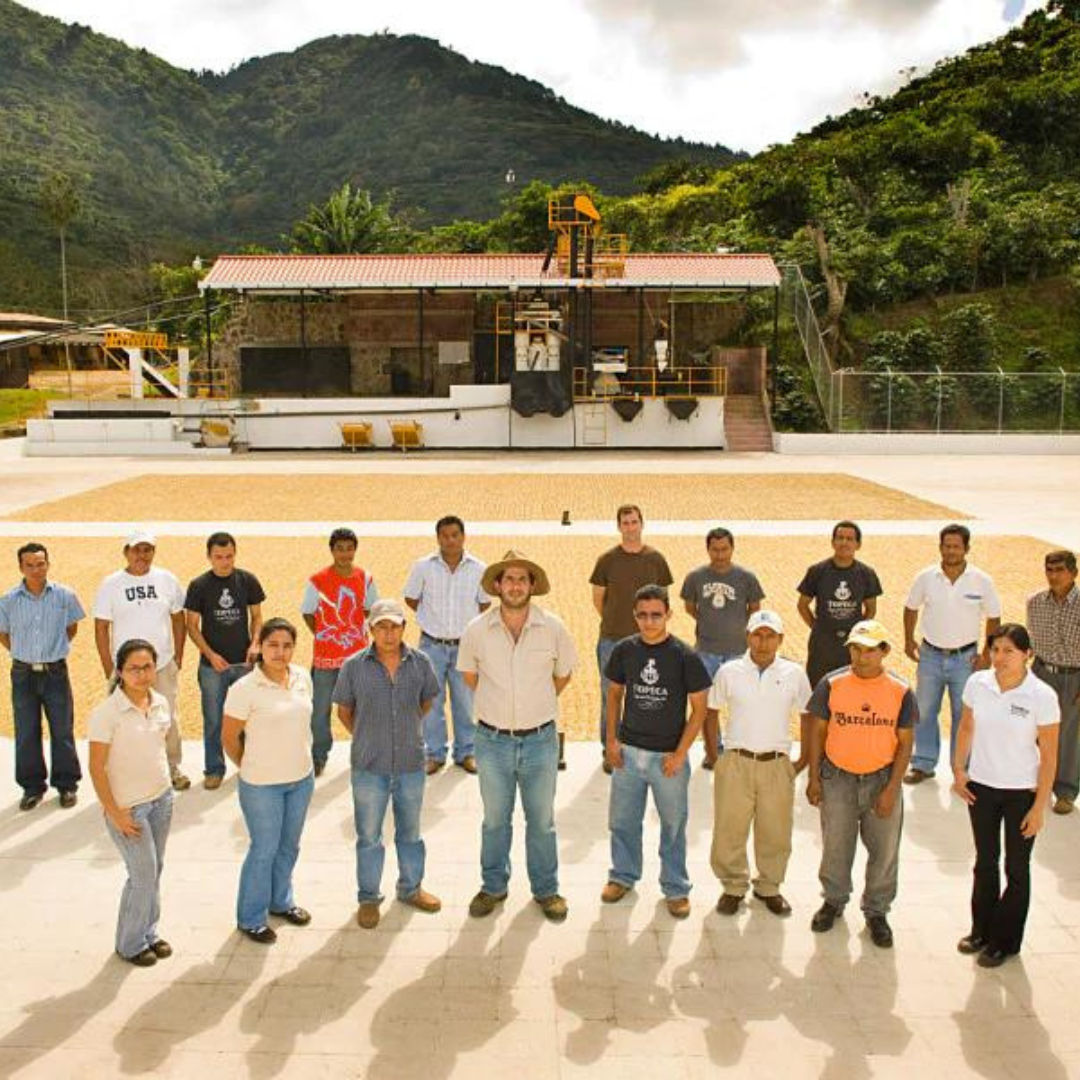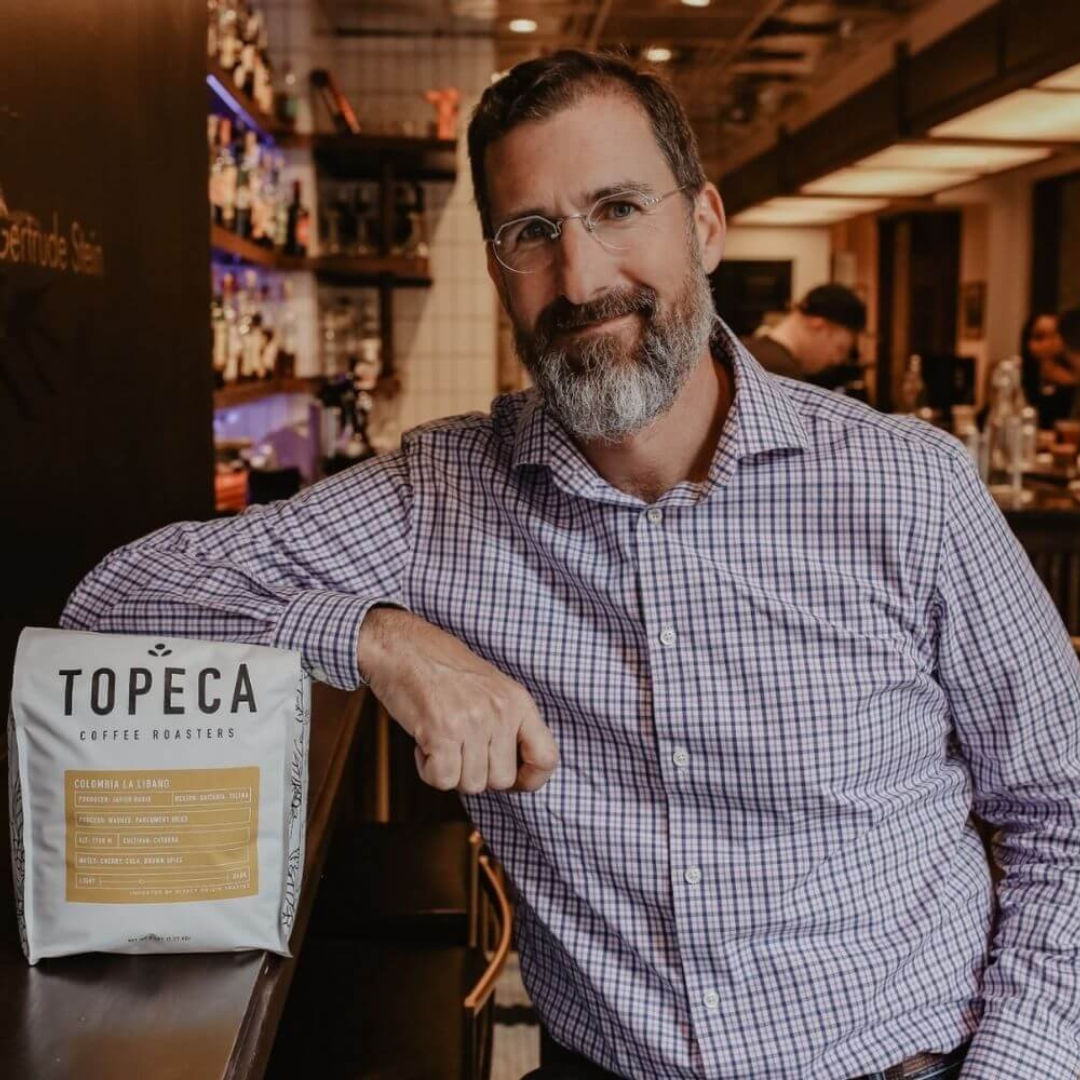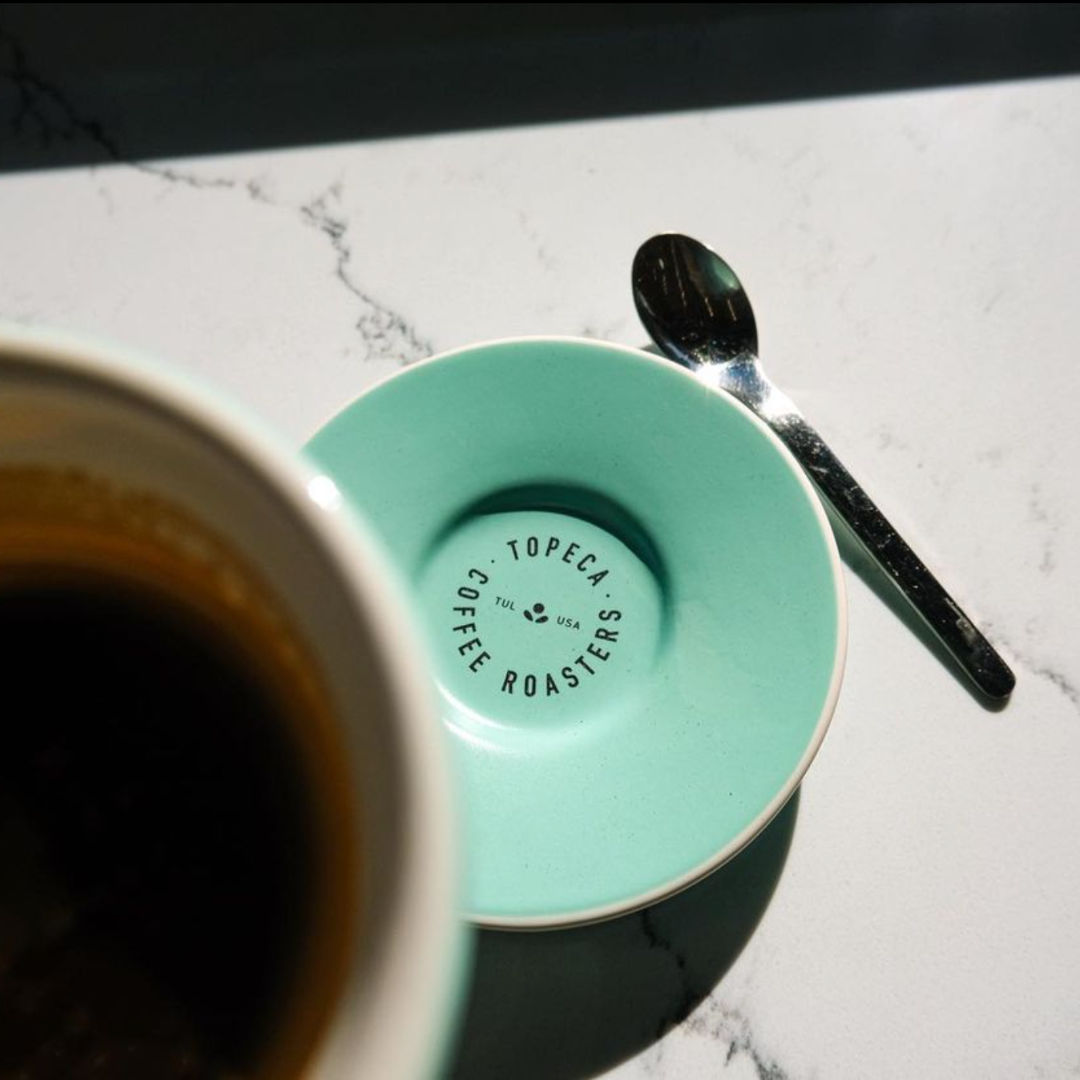Did you know that Downtown Tulsa has numerous stories of women who have left a mark on Tulsa's history with their business savvy? Well, it's true! We're very excited to start sharing some of those stories with you, beginning with Margarita Gaberino, founder and co-owner of Topeca Coffee Roasters.
Topeca Coffee Roasters is one of the first farm-to-coffee roasters in the world, roasting and brewing coffee from their family farms in El Salvador. They have three coffee shops spread across Downtown Tulsa where their baristas serve coffee and pastries seven days a week. They also sell their coffee to other local Tulsa coffee shops and businesses and ship their coffee worldwide. You can also find their products at retail stores like Walmart, Reasors, Sprouts, and more in the Tulsa area. Topeca is one of Tulsa's most beloved cafes, and we want to share the story of how it all began.

Tell us about yourself.
My name is Margarita, and I am originally from El Salvador. I have been living in Tulsa, Oklahoma, for 22 years, and I grew up in El Salvador. I came to the United States for university to study marketing. I went to college in New Orleans, and there I met my husband, John Gaberino. He's originally from Tulsa, so after we graduated, we both lived in El Salvador for a few years. We later decided to move to Tulsa. His family is here, and if we came to the United States, I wanted to be close and have a family. For me, family is something very important. So we decided to move to Tulsa in 2000.
What is the story of Topeca?
Well, the truth is that my family has been working in the coffee industry for many generations, probably six generations. And always, since I was little, I have lived the coffee life. Since I can remember, my grandparents, my mother, and my family have been involved in that industry. We have several properties in El Salvador which have been passed down from generation to generation. What we did was maintain the farms and cultivate the farms, and once we had the coffee, we exported it out of the country directly. That had always been the way the product was handled. When the year 2003 arrived, there was a recession. The price of coffee fell, and basically, many people in El Salvador could no longer maintain their farms. It cost more to work the farms than one could sell the product for. So many people began to sell their farms or no longer work on them.

At that time, we realized that we could not continue like this. We have generations working in coffee, and we have many families that live on the farms and depend on us. So we began to think about how we could continue the business, and around 2003/2004, we decided that the only way we could continue was to do a vertical integration, which was basically not just harvesting the coffee, but we created a milling facility on our farm to process the coffee. Once the coffee is ripe it is like a red cherry. The flesh is then cut, and the milling begins to process the coffee, meaning you remove the cherry, dry the coffee been, and prepare the grain for export.
We started importing, and that's when we also decided to open a roastery here in the United States. Since we were in Tulsa, well, we opened our roastery here, and that's how we started. It was an opportunity that allowed us to survive the recession that took place in the coffee industry.

When and why did you decide to open Topeca coffee shops?
Well, we started that process when we started the roasting business in Tulsa. We started by selling our coffee to restaurants and offices. And we had a kiosk in a supermarket called Paris Fine Food. My husband worked 70 hours, or who knows how many hours, giving samples of our coffee beans and selling cups of coffee. The public was very receptive and liked what we were offering. Before the year 2000, people kind of didn't know much about what specialty coffees were and how good coffee could taste so delicious. So, we started making ourselves known here in Tulsa, and seeing that we could grow, we decided to open our roaster in 2005. We no longer received bagged coffee but instead bagged the coffee in Tulsa and distributed it ourselves. Little by little, we grew, and we decided to open our first coffee shop in 2007. Our first coffee shop was in Downtown Tulsa, where the Mayo Hotel is. We have a lot of passion for Tulsa, especially the Downtown area.

Why did you put your first coffee shop in Downtown Tulsa?
We started to see that the Downtown area was going to make a comeback. There were many projects starting at the time: They were going to renovate the Mayo Hotel and build the BOK Center. So we saw the opportunity to plant our tiny seed in Downtown and open our first coffee shop (in the Mayo). I ran the coffee shop from 2007 to 2011, and my husband managed everything related to coffee processing, importing, exporting, and gaining wholesale customers. So we began to be recognized in the country, and we began to sell to other coffee shops in Tulsa and outside of Oklahoma. In 2011 we had the opportunity to open our second coffee shop in the Hyatt hotel in Downtown. We now sell to Sprouts, Walmart, and other local supermarkets. We also sell our coffee all over the world (in) Europe and Australia. And we are starting the project of canning our coffee.
We also saw the opportunity to create a new concept, which was the concept of making a cocktail lounge and coffee shop, and that's when we created Hodges Bend. That was my husband's project to try to diversify a bit and offer coffee and be a bar at the same time. That is where we make all of our baked goods and what has been sold in our coffee shops since 2015.
How did you choose the name?
Well, Topeca was like my nickname when I was little. And then, when we were trying to find a name, millions of ideas came to mind, and we landed on Topeca. My nickname has a long story. I couldn't say "Margarita," when I was a kid but I would say "autopista," or something like that. So I'm like "Topeca" in my family. But as a joke — it's not what they actually call me.
Do you still work in the coffee business?
For about 14 or 15 years I was managing the three businesses and, well, my children needed me. So I got to a point where I said, "No, I can't go on anymore; I'm going to dedicate myself to my children." They were already teenagers, so I decided to retire, and it was then that my husband took the reins of everything. Since my children are grown, I now work with Tulsa Remote.
Does your family also work with coffee?

Yes, yes. Well, my mom is the one who always managed the farms. In the 2000s, we needed to do something and change our processes, so my brother got involved, and he was the one who started our vertical integration to create the milling facility and create direct distribution lines outside of El Salvador. So he is the one who manages all the farms and the distribution worldwide. He is very involved in the coffee industry. He has been a member of the AFI Association Boards, and he travels the world promoting our coffee.
My children are both in college right now. But yes, during COVID my son, who was 17 at the time, ran the coffee shop at the Philcade when no one could come to work. We had no employees, and he was the one who opened and closed every day. My daughter is in college, and she currently works in a coffee shop because she has that same passion for coffee.
The last question: How do you drink your coffee?
I used to drink more coffee. Now I can't anymore after 12 PM or I'll stay up all night. But every morning I have my coffee with my husband. He does drink coffee all the time. And all of us in our family drink our coffee black, without sugar and without milk. That's how it should be. A good coffee should be good without adding things to it. So we invite all of Tulsa to come to Downtown and try our delicious coffee.
Mentioned in this Post
Topeca Coffee
100 E 2nd Street
Topeca Coffee
507 S Boston Avenue
Topeca Coffee
110 N Elgin Avenue
The Mayo Hotel
115 W 5th Street